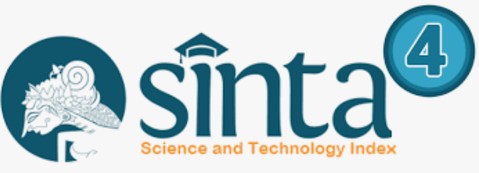PROFESSIONAL ZAKAT IN THE PERSPECTIVE OF MUHAMMADIYAH AND PERSATUAN ISLAM: A COMPARATIVE ANALYSIS
DOI:
https://doi.org/10.36085/jamekis.v8i2.8434Abstract
Zakat, as a fundamental pillar of Islam, serves as a potential instrument for poverty alleviation. Among its contemporary applications is professional zakat, which remains a subject of debate due to the lack of explicit references in classical Islamic texts. This study aims to compare the perspectives of Muhammadiyah and Persatuan Islam (Persis) regarding the obligation of professional zakat and analyze the istinbath methodologies employed by both organizations. This research adopts a qualitative approach with a descriptive-analytical and comparative method. Data collection was conducted through documentary analysis, library research, and interviews with key figures from Muhammadiyah and Persis. The findings reveal that Muhammadiyah considers professional zakat obligatory, using a broad interpretation of zakat provisions and analogy with zakat on gold and silver. In contrast, Persis does not recognize professional zakat, arguing that zakat is an ibadah mahdhah that cannot be established without explicit textual evidence. Instead, Persis suggests mandatory infak on professional income without a fixed rate and nisab. These differences highlight the diversity of ijtihad and practice in Islamic social finance among muslims. However, both organizations agree on the necessity of social contributions from professional income, whether through zakat or infak
References
Abdullah, S. (2003). Zakat Profesi. PT. Moyo Segoro Agung.
Abdurrahman, A., Muqoddas, M., Azis, M. A., Hamal, C., Chatib, M., Noer, A., Anwar, S., Djamil, F., & Amien, D. (2014). Pedoman Zakat Praktis: Dewan Syariah Lazis Muhammadiyah. Suara Muhammadiyah.
Al-Muflih, A. B., Jamil, M., & Syahnan, M. (2019). Metode Istinbath Hukum Zakat Profesi Pada Majelis Tarjih Muhamadiyah dan Implikasinya terhadap Penerapan Zakat Profesi di Universitas Muhammadiyah Sumatera Utara. At-Tafahum: Journal of Islamic Law, 2(1).
Anwar, S. (2007). Studi Hukum Islam Kontemporer. RM Books.
Aziz, M., & Sholikah, S. (2014). Zakat Profesi dalam Perspektif Undang-Undang No. 23 Tahun 2011 dan Hukum Islam. Ulul Albab: Jurnal Studi Islam, 15(2), 188–205. https://doi.org/https://doi.org/10.18860/ua.v15i2.2665
Aziz, M., & Sholikah, S. (2015). Metode Istinbat Hukum Zakat Profesi Perspektif Yusuf Al-Qardawi dan Implikasinya Terhadap Pengembangan Objek Zakat di Indonesia. Ulul Albab: Jurnal Studi Islam, 16(1). https://doi.org/10.18860/ua.v16i1.3039
Bakker, A., & Zubair, A. C. (2005). Metodologi Penelitian Filsafat. Penerbit Kanisius.
Bouanani, M., & Belhadj, B. (2019). Zakat and Poverty Alleviation in Tunisia Using the Fuzzy Approach. Journal of Quantitative Economics, 17(2), 421–432. https://doi.org/10.1007/s40953-019-00154-2
Cahyani, A. I. (2020). Zakat Profesi Dalam Era Kontemporer. El-Iqthisady: Jurnal Hukum Ekonomi Syariah, 2(2), 162–174.
Damayanti, A. (2020). Problematika Zakat Profesi Di Era Modern Menurut Hukum Islam. J-ESA (Jurnal Ekonomi Syariah), 3(2), 248–263.
Fathurrahman, M. R., & Hendraningsih, J. A. (2024). Fatwa Zakat Profesi dalam Timbangan al-Qur’an: Studi Penafsiran Yusuf Al-Qaradhawi. Izzatuna: Jurnal Ilmu Al-Qur’an Dan Tafsir, 5(1 SE-Article), 1–13. https://doi.org/10.62109/ijiat.v5i1.80
Gulö, W. (2010). Metodologi Penelitian. PT. Gramedia.
Hafidhuddin, D. (2004). Zakat dalam Perekonomian Modern. Gema Insani Press.
Herianingrum, S., Ernayani, R., Seto, H., Rayandono, M. N. H., & Fauzy, M. Q. (2020). The impact of zakat, education expenditure, and health expenditure towards poverty reduction. Systematic Reviews in Pharmacy, 11(12).
Ismanto, R., & Amin, M. (2021). The Policy of Zakat on Profession in Indonesia In The Perspective of Islamic Fikh: Analysis Of Guidelines For Implementing Zakat on Profession According To the Ministry of Religion, The Indonesian Ulema Council, And the National Zakat Agency. Kodifikasia, 15(2), 281–296.
Jamaluddin, S. (2010). Kuliah Fiqh Ibadah. LPPI UMY.
Kamiluddin, U. (2006). Menyorot Ijtihad Persis: Fungsi dan Peranannya dalam Pembinaan Hukum Islam di Indonesia. Tafakur.
Laili, A. A., Rodafi, D., & Sa’adah, F. (2022). Zakat Profesi Perspektif Wahbah Al-Zuhaili dan Yusuf Al-Qardlawi. Jurnal Hikmatina, 4(3), 221–227.
Ma’mun, M. (2021). Hukum Zakat Profesi Perspektif Majlis Ulama Indonesia (MUI). El-Faqih : Jurnal Pemikiran Dan Hukum Islam, 7(2 SE-Articles). https://doi.org/10.29062/faqih.v7i2.266
Ma’mun, M., & Firmansyah, M. (2022). Zakat Profesi Perspektif Dewan Hisbah Persis. El-Faqih : Jurnal Pemikiran Dan Hukum Islam, 8(2 SE-Articles). https://doi.org/10.58401/faqih.v8i2.726
Miles, M. B., & Huberman, A. M. (2014). Analisis Data Kualitatif. UI-Press.
Mutmainnah, R., Akbar, I. N., Pati, M. D., & Fadhilatunisa, D. (2023). Zakat Profesi: Membangun Kesejahteraan Umat. Indonesian Journal of Taxation and Accounting, 49–56.
Nawawi, H. (2007). Metodologi Penelitian Bidang Sosial. Gadjah Mada University Press.
Oxford University Press. (2025). Definition of professional noun from the Oxford Advanced Learner’s Dictionary. Oxford Learner’s Dictionaries. https://www.oxfordlearnersdictionaries.com/definition/english/professional_2
Prabowo, T. (2017). Metode Istinbath Hukum Zakat Profesi (Studi Komparatif Nahdlatul Ulama Dan Muhammadiyah). UIN Sunan Kalijaga Yogyakarta.
Qardawi, Y. (2011). Hukum Zakat (Fiqhuz-zakat). Pustaka Litera Antar Nusa.
Qodsiyah, B. H., & Pd, S. (2021). Analisis Pengaruh Al-Qowaid Al-Ushuliyah Dan Al-Qowaid Al-Fiqhiyah Terhadap Perbedaan Pendapat Dalam Fiqh (Kasus Zakat Profesi). Al-Inṣāf, 1(1), 1–20.
Rahmat, R. J. (2014). Hukum Zakat Profesi Menurut Dewan Hisbah Persatuan Islam dan Bahtsul Masail Nahdlatul Ulama. UIN Sunan Gunung Djati Bandung.
Rais, M. A. (1991). Cakrawala Islam: antara Cita dan Fakta. Mizan.
Rais, M. A. (1998). Tauhid Sosial: Formula Menggempur Kesenjangan. Mizan.
Rini, R., Fatimah, F., & Purwanti, A. (2020). Zakat and Poverty: An Indonesian Experience. International Journal of Innovation, Creativity and Change, 10(11), 759–770.
Rohman, P. S., Fianto, B. A., Ali Shah, S. A., Kayani, U. N., Suprayogi, N., & Supriani, I. (2021). A review on literature of Islamic microfinance from 2010-2020: lesson for practitioners and future directions. Heliyon, 7(12), e08549. https://doi.org/https://doi.org/10.1016/j.heliyon.2021.e08549
Sahroni, O. (2019). Fikih Muamalah Kontemporer. Republika Penerbit.
Trigiyatno, A. (2016). Zakat profesi antara pendukung dan penentangnya. Jurnal Hukum Islam, 14(2), 135–151.
Umar, M. H., & Zahidin, Z. (2020). Pendekatan Hukum Zakat Profesi Menurut Ulama Konservatif Dan Progresif. Jurnal Literasiologi, 3(4). https://doi.org/https://doi.org/10.47783/literasiologi.v3i4.125
Zabidi, I., Hendra, L., Mulyati, A., & Suryono, D. W. (2024). Legalitas Zakat Profesi dalam Perspketif Ekonomi Islam. Madzahib, 6(2), 1–15.
Zauro, N. A., Saad, R. A. J., & Sawandi, N. (2020). Enhancing socio-economic justice and financial inclusion in Nigeria. Journal of Islamic Accounting and Business Research, 11(3), 555–572. https://doi.org/10.1108/JIABR-11-2016-0134







